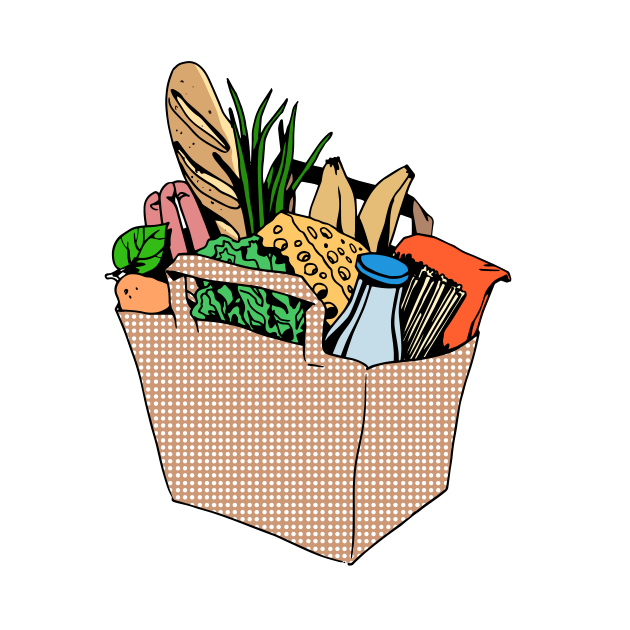What is an eating disorder?
You’ve probably noticed that our emotions and the way we eat are intimately connected. Think about it… have you ever been unable to eat because of stress (the night before an exam, for instance)? Have you ever eaten to relieve anxiety and to feel better? Skipped a meal because you were feeling fat? Or felt guilty after eating one food in particular?
We all have a hard time, to some extent, eating in a balanced way, appreciating our bodies, and taking care of our bodies in the best way possible. It’s completely okay to eat a bit more than you need to from time to time, or to occasionally eat something you enjoy to calm your nerves, but this can become problematic when food, the action of eating or refraining from eating, becomes the only method you use to control emotions that make you uncomfortable. Some people end up developing what we call an eating disorder in response to difficult situations they face in life.
You have no doubt heard of anorexia or bulimia; up until quite recently, they were the most well-known eating disorders. Today, thanks to advances in research, we are starting to talk more about more about different kinds, such as binge-eating disorder and other eating disorders (like bigorexia). Eating disorders are complex mental health problems and are not to be taken lightly.
What are the causes of eating disorders?
There are a multitude of factors that can lead a person to suffer from an eating disorder. This means that there isn’t just one cause, but a combination of factors that lead someone to develop an eating disorder.


When are people most susceptible to developing eating disorders?
Adolescence and young adulthood, from around 14 to 25 years of age, is the time when people are most at risk of developing eating disorders. Why? Adolescence and young adulthood are periods when we go through a lot of change, experience a lot of new things, and encounter stressful events. This includes the transition from one level of schooling to another, the first time dating or having sexual relations, puberty, moving out from the home you grew up in and living alone or with roommates, trying to get on the job market, etc.
It’s a period of adaptation where you’re searching for your identity, learning who you are, developing your personality and asserting yourself. For some people, these changes can be hard to manage. To get through it, they rely on unhealthy habits that have to do with their bodies and the way they eat.
A sickness that goes beyond food
To truly understand what an eating disorder is, imagine an iceberg. The piece of ice at the surface of the water represents the eating disorder sufferer’s behaviours that we can observe. This can include drastic weight loss, self-isolation, skipping meals, etc. But what’s hidden behind these behaviours (under the water) is a great deal of suffering.
Eating disorders give the sufferers the impression that they’re exercising a level of control over their lives. The disorders allow them to control feelings, conflicts and difficult situations. In a way, they seem to serve as a life jacket during hard times. Eating disorders appear to help, and act like allies, although in reality, of course, this is not the case. This method of adapting to hardships in life is not healthy (but is the only method available to the person at that time) and cannot work in the long term. What’s more, eating disorders come with their own share of consequences.

Who can suffer from an eating disorder?
It’s important to understand that anyone can suffer from an eating disorder, regardless of sex, age, sexual orientation, religion or cultural background.

What are the different eating disorders?
Anorexia
Anorexia is characterised by an intense fear of gaining weight. A person suffering from anorexia will experience particularly strong feelings of shame and guilt after eating. Weight control and the need to become or stay skinny will occupy a large place in that person’s thoughts and in their life (ex: they might weigh themselves several times a week or every day, or constantly calculate how many calories they ingest). Anorexia is also associated with a distorted body image, meaning that the sufferer might feel “fat” even if, in reality, they’re way under a healthy body weight. Someone with anorexia will try to develop an intense level of control over what they eat. Their thoughts and behaviours regarding eating will be extremely rigid or restrictive (ex: the need to completely abstain from eating certain foods in particular).
Anorexia can cause irregular menstrual bleeding, or even make menstruation stop altogether.
We often associate anorexia with thinness. However, it’s important to know that just because someone is skinny, does not mean they suffer from anorexia. Sometimes, a person who suffers from anorexia is very thin because of their eating habits. On the other hand, there are also people who are not skinny at all, who may seem to have a normal body weight or a body weight considered “healthy”, who suffer from anorexia. We cannot rely on body weight alone to be able to tell if someone has an eating disorder.

Bulimia
Bulimia is characterized by a cycle of binge-eating periods (periods of excessive overeating) followed by compensatory measures. In other words, a sufferer of this condition loses control of the way they eat. They ingest a large amount of food in a short amount of time, even if they don’t feel hungry anymore. These episodes of compulsiveness often happen during emotionally trying times.
After these episodes, the person will resort to compensatory measures, sometimes called purging, in order to eliminate the food they have ingested (ex: doing very intense exercise). These periods are accompanied by extreme guilt, self-hate, and negative feelings, both physical and psychological. A person suffering from bulimia is often dissatisfied with their body image and can have obsessions around weight and food. It is difficult to know whether someone is suffering from bulimia, unless you are very emotionally close to the person or are a trained professional. A person suffering from bulimia can appear to be in very good health. They may have a body weight that seems healthy for their size, or may be overweight. For this reason, it’s important to be on the lookout for these signs :
- If the person constantly talks about their weight and appearance .
- If they compare their body to those of others
- If they isolate themselves (are present less and less often at activities with friends, or during meals)
- If they feel guilty after having eaten too much
- You can consult the questionnaire Am I at Risk? to learn more.


Binge-Eating Disorder
This disorder is characterised by episodes where the person eats excessive amounts of food, meaning they lose total control of the quantity of food they ingest. They eat to the point when they feel extremely uncomfortable, way past a pleasantly full feeling. People who suffer from binge-eating disorder may eat to calm certain emotions they find difficult to face. For example, when they’re feeling down, are angry, or feeling alone and bored. Food can become, in a way, a source of comfort and give a feeling of well-being.
As you may have guessed, when the person eats in this excessive way, the person suffering from binge-eating disorder feels ashamed and guilty. These episodes of overeating are not followed by compensatory periods. People with binge-eating disorder are generally overweight due to their eating habits. Many of them have tried dieting time and time again, hoping each time to have finally found the solution to lose weight and feel happier.

Eating disorders not otherwise specified
Eating disorders not otherwise specified include problems that don’t exactly meet the criteria for specific eating disorders such as anorexia, bulimia and binge-eating disorder. It’s a sort of “catch-all” category that includes eating disorders we still can’t understand or explain very well.
People suffering from unspecified eating disorders are generally dissatisfied with their bodies and their weight, and this becomes a source of obsession and suffering. They often count calories ceaselessly, use diets for weight loss (constantly trying new diets and new techniques that are in style to lose weight or gain muscle mass), practice overly intensive work-out regimens, etc.
Bigorexia and orthorexia are two examples of eating disorders from this category that we are hearing about more and more often.
Bigorexia
Bigorexia, or muscle dysmorphia, is characterised by the feeling of being too skinny and never muscular enough. Bigorexia is also called reverse anorexia. It’s a disorder that affects primarily men and very athletic people. It is possible for the person suffering from bigorexia to follow strict rules in terms of eating (ex: eating at specific times, eating specific foods), working out (or excessively working out) and, in certain cases, taking supplements. Feelings of shame and guilt are present when the person can’t follow their work-out schedule. Other activities, pastimes and moments of relaxation are put aside in favour of working out.




Orthorexia
Orthorexia is characterised by an obsession with eating healthily. The person suffering from orthorexia is pained by the idea of eating food that they think is “bad” or unhealthy (ex: food that, in this person’s opinion, contains too much fat, salt, sugar, or artificial ingredients). The person will concentrate mostly on the quality of their food. They will put a lot of restrictions on what they eat, and if they disobey their diet’s rules, they will feel extremely guilty. Due to the extremity of their behaviour, meals with friends or at restaurants become too difficult to handle, and this leads to self-isolation. Planning, buying, and preparing food become their everyday activities. Food becomes the most important thing in life, at the expense of everything else.
What are the possible consequences of an eating disorder?
The physical, psychological and social consequences of eating disorders are numerous and serious. When left untreated, eating disorders can lead to death. Fortunately, the majority of consequences are reversible, meaning that they will no longer be present with recovery (if the person begins eating in a balanced way again and stops using compensatory measures).

Is recovery possible?
It is possible to completely recover from an eating disorder. However, it is important to know that there is no miracle solution and that a person cannot recover alone. Recovery is possible with the help of professionals. During the process of finding help and healing, it’s also important for the person recovering to have support from people around them. Apart from parents and guardians (who will have a major role to play), this can be a very trusted friend who will be there during hard times.
The road that leads to recovery can seem long and hard, but it is worth the effort! Recovery means living fully (and not just surviving), becoming a whole person, fulfilling goals in life and going after dreams (like pursuing an education and getting a job in the field that inspires you, or the chance to start a family if that’s important to you).
RECOMMENDED READINGS
Want to know more about body image, body diversity and eating disorders? For more information, please see the recommended reading list below on these important subjects. These books are for children, youth and parents. …Happy reading!






